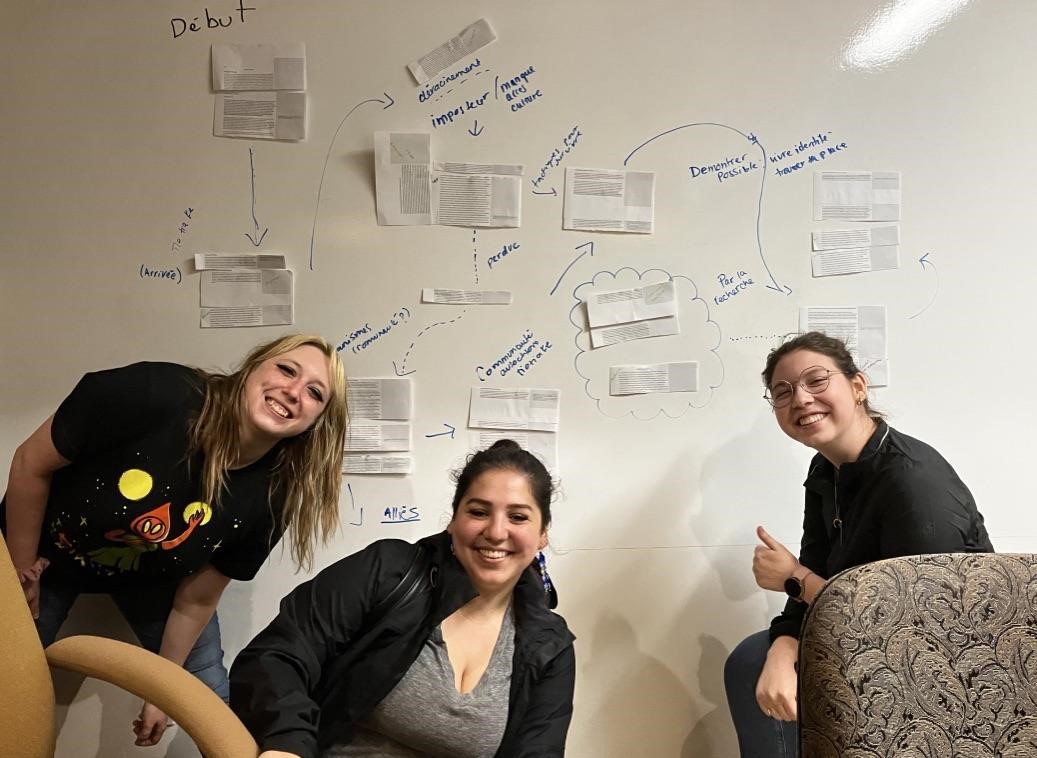Ionkwakaratónnion ne onkwaká:ra (nous racontons nos histoires) : décoloniser la recherche en tressant un récit collectif
Alicia Ibarra-Lemay , Coralie Niquay , Jennifer Buckell , Marie-Ève Drouin , Stéphane Guimont-Marceau
The Kanien’kéha expression “ionkwakaratónnion ne onkwaká:ra”, which translates as “we tell our stories”, embodies, in the language of the territory, the heart of the research project recounted in this chapter. This project, conducted between 2019 and 2023, was built around participatory mapping with Indigenous youth from Montréal/Tiohtià:ke. By discussing their relationships with and in the city, it aimed to place their narratives back at the heart of urban and research spaces to support the decolonization of these spaces. Since autumn 2021, a committee of participants, considered to be co-researchers, has been engaged in a process of collective analysis and the production of knowledge mobilization tools that will be used to disseminate the main results of this process. Three members of this committee and the project’s two principal researchers are collaborating on this chapter. Coralie Niquay, Atikamekw and Québécoise, was involved as a research assistant in setting up the virtual mapping workshops in the fall of 2020, and also contributed as a participant. Alicia Ibarra-Lemay, Kanien’kehà:ka and Chilean, participated in individual interviews in summer 2021. Jennifer Buckell, Ilnu, contributed to the project as a research assistant and joined the committee. Stéphane Guimont Marceau and Marie-Ève Drouin Gagné, both professors at INRS UCS, are non-indigenous Quebecers committed to the decolonization of research. This chapter draws on the narratives of these Indigenous youth concerning their relationships with and in Montréal/Tiohtià:ke, as well as their engagement with the research project, and shows how the latter enabled the implementation of a decolonial methodology through the assembly of different individual narratives into a collective narrative. We begin with a brief presentation of the research process, before moving on to the narratives that Coralie, Jennifer and Alicia have woven together in a relational approach. In so doing, they reproduce the research process among themselves. Their narratives converge on a number of points, notably the identity journeys they have experienced in Montréal/Tiohtià:ke, and the way in which the city, the indigenous community and their various research commitments have led them to find their place and live out their identities, in the city. We conclude this chapter with a second conversation about the impacts of our research project.

Type of production: Scientific articles and chapters
City: Montreal
Year of publication: 2024
Publisher: Les jeunesses autochtones : décolonisation, fierté, mieux-être, Chaire réseau Jeunesse du Québec
Language(s) of publication: Français
Keywords: